Post details
Alexander Petros delves into htmx, lightweight protocols, and open source software's impact on the web's future.
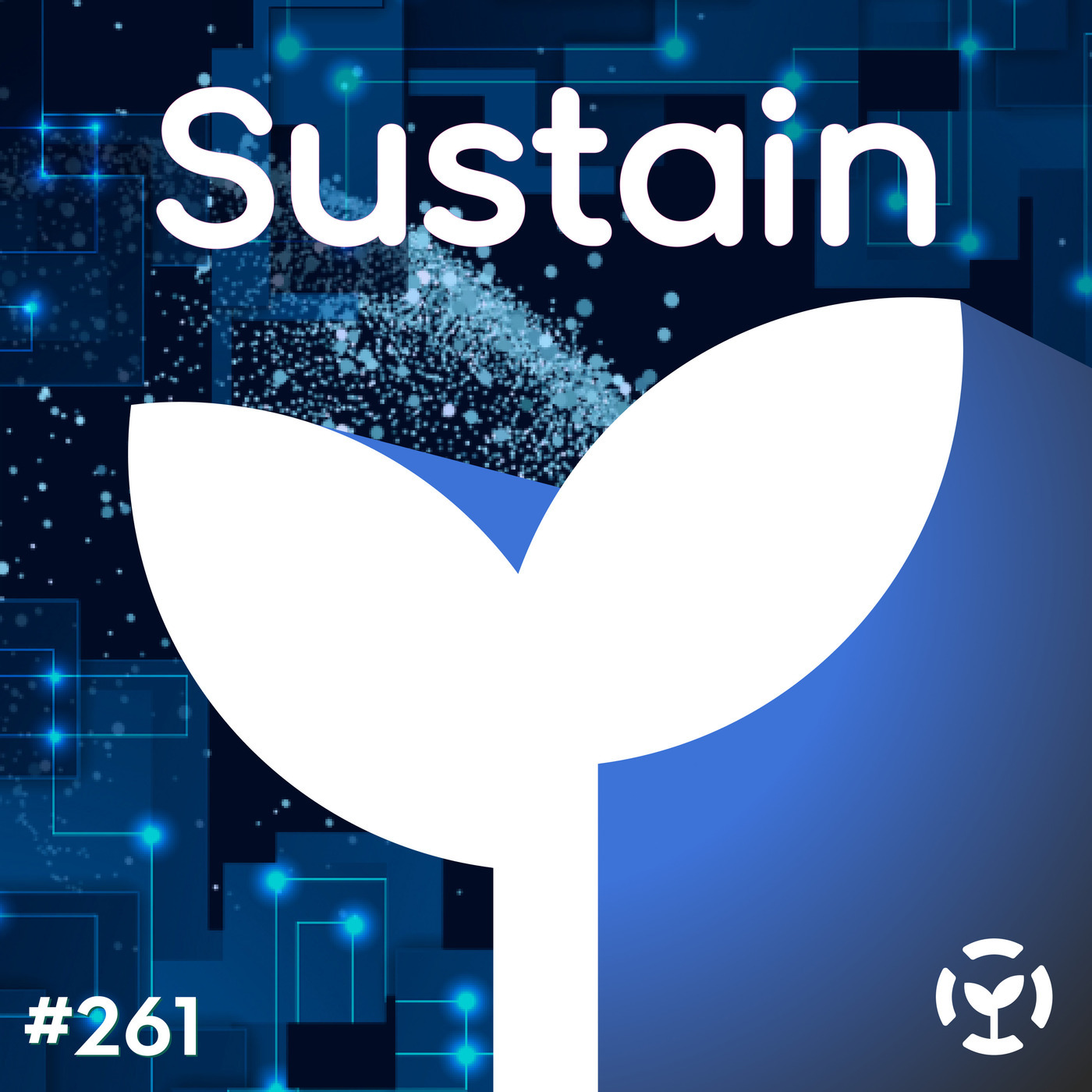
Alexander Petros delves into htmx, lightweight protocols, and open source software's impact on the web's future.

and talk about the supply chain of Santa. Does he purchase all those things? Are they counterfeit goods? Are they acquired some other way? And once he has all the stuff, the logistics of getting it to the sleigh is mind boggling. It's all very complex Show Notes

It's Boxing Day, we're feeling festive, and everyone's best friend Nish Kumar has popped in to order his favourite Christmas meal. Plus we need your help to #BringBackKumarsCobbler
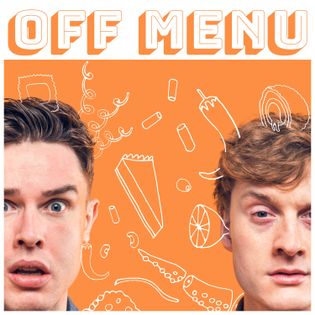
Listen to Ep 273: Rose Matafeo (Christmas Special) from Off Menu with Ed Gamble and James Acaster. Merry festivities! We’re back with our first Christmas special, and our very special guest diner is NZ comedian and ‘Junior Taskmaster’ host, Rose Matafeo.Rose’s new special ‘On And On And On’ is on Max on 19 Dec.‘Junior Taskmaster’ is on Channel 4, Fridays at 8pm. Watch it here.Follow Rose on Instagram @rosematafeoOff Menu is a comedy podcast hosted by Ed Gamble and James Acaster.Recorded and edited by Ben Williams for Plosive.Artwork by Paul Gilbey (photography and design) and Amy Browne (illustrations).Follow Off Menu on Twitter and Instagram: @offmenuofficial.And go to our website www.offmenupodcast.co.uk for a list of restaurants recommended on the show.Watch Ed and James's YouTube series 'Just Puddings'. Watch here.
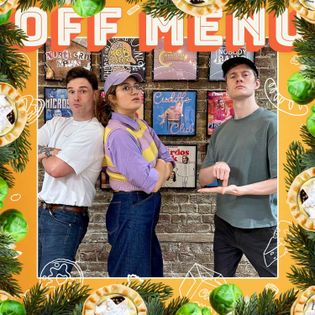
Justin & Autumn get together one last time for a retro: favorite episodes, lessons learned, biggest surprises & what's next.
Go 1.24rc1 is out. Start testing it!golang.org/x/net v0.33.0 released with security patches for golang.org/x/net/html🇸🇬 GopherCon Singapore coming up, Jan 22-241.24 in preview🧶 New iterator functions added to the bytes and strings packages🗺️ sync.Map has a new, faster implementationThe testing...

Two members of the OpenTelemetry governing board, Daniel Gomez Blanco and Juraci Paixão Kröhling, join Mat and Matt to dive deep into the evolution of OTel from its early days (including the story ...
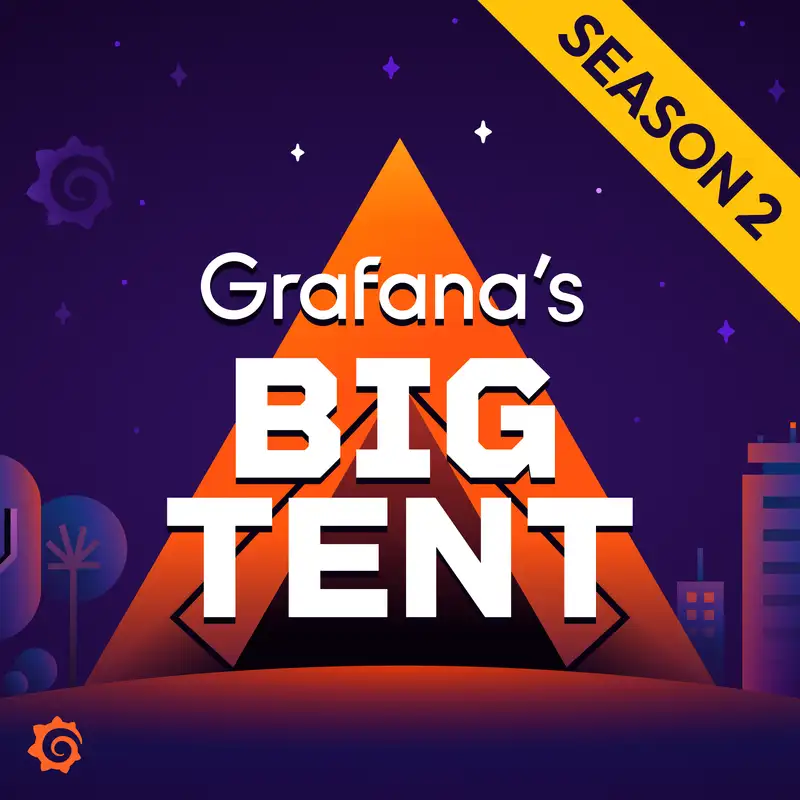
Our 7th annual year-end wrap-up is here! We're featuring 12 listener voicemails, dope Breakmaster Cylinder remixes & our favorite episodes of the year. Thanks for listening! 💚
Tessa Kriesel is the founder of builtfor.dev, where she helps DevTools founders with GTM.In this episode we talk about how she helps founders improve their go to market strategy in a short sprint.L...
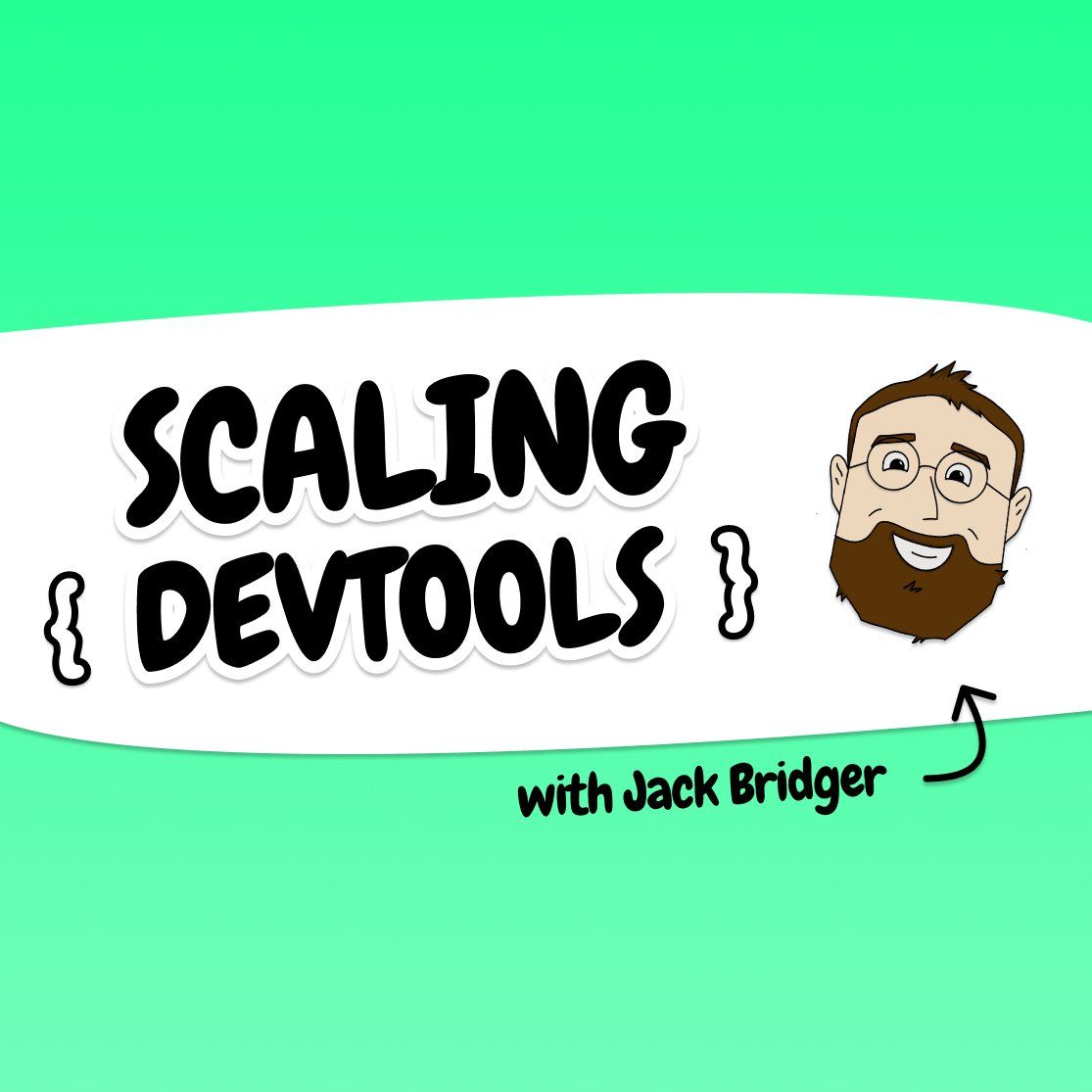
This week on The Business of Open Source, I have a special episode recorded on-site at KubeCon NA this fall, with Ramiro Berrelleza, the CEO of Okteto. We kicked off the conversation with a discussion about branding. Okteto is the name of the company, the name of the project and the name of the...

Brian Douglas is the founder and CEO of Open Sauced where he works on increasing the knowledge and insights of open-source communities. In the past he’s lead Developer Advocacy at GitHub by fostering a community of early adopters through content creation showcasing the newest Github features. Open Sauced just joined the Linux Foundation and we learn how and why that move happened on this episode! Brian has a passion for open-source and loves mentoring new contributors through Open Sauced, the platform that empowers the best developers to work in open-source. https://opensauced.pizza

Sigstore creator, Chainguard CEO, OpenSSF TAC member and Season 1 guest Dan Lorenc returns to discuss the year in open source and security. Topics range from software supply chain management, hardening container images and SBOMs in limbo to open product companies and business models, including his own company's shift in focus this year. Plus: a look ahead to SecOps and AI in 2025.
In this episode, CRob talks to Tara Tarakiyee, FOSS technologist at the Sovereign Tech Agency, which supports the development, improvement and maintenance of open digital infrastructure. The Sovereign Tech Agency’s goal is to sustainably strengthe...

In this episode, Stephen, Pete and Chris take a look back at 2024 at incident.io — reflecting on the year’s personal milestones, company-wide changes, and how the product has evolved along the way. And as is customary, there's plenty of the usual good-natured humor along the way too.

Mitchell Hashimoto joins the show to discuss Ghostty, the newest terminal in town. Mitchell co-founded HashiCorp, took it all the way to IPO, exited in 2023—and now he's working on a terminal emulator called Ghostty. Ghostty is set to 1.0 this month, so we sat down to talk through all the details.
In today’s episode of The Pragmatic Engineer, I’m joined by Sean Goedecke, Staff Software Engineer at GitHub.

Mat gathers the entire cast (sans Natalie, sadly) alongside our producer, Jerod Santo, for one last Go Time. That's right, this is Go Time's finale episode. After eight years and 340 episodes, we are going out on top. Join us one last time, you won't regret it! We share our feelings, reminisce on the good times, list...
Welcome to Fallthrough! In our first episode, properly numbered 0, we're discussing what this podcast is and many of the things we hope to discuss on future episodes of the podcast. If you loved Go Time, we hope that you'll love Fallthrough. Happy...
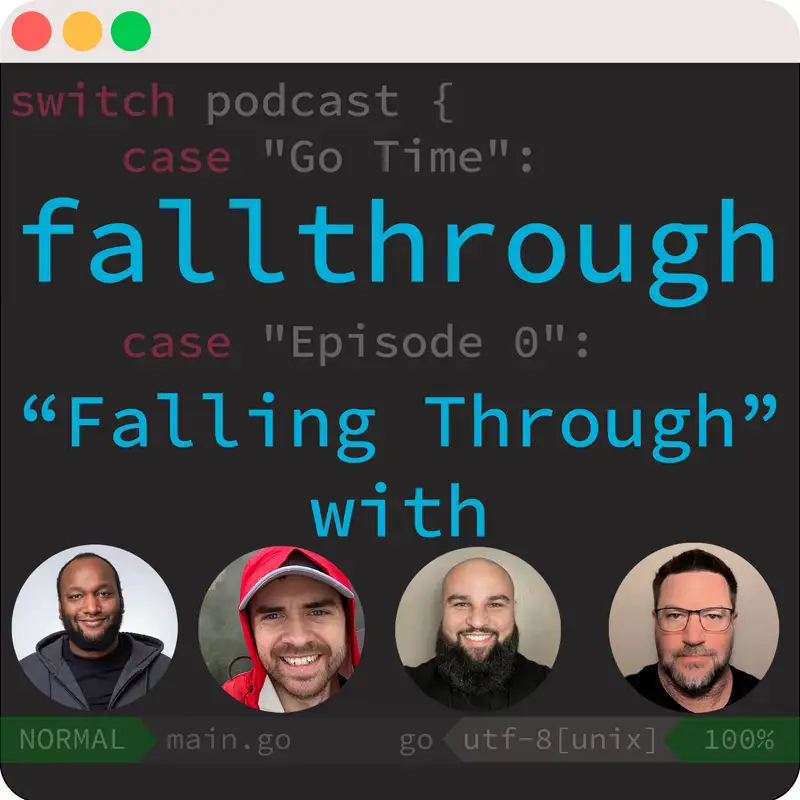
Taskmaster The Podcast · Episode

Taskmaster The Podcast · Episode

Taskmaster The Podcast · Episode

Bryan and Adam were joined by Theo Schlossnagle, KellyAnn Fitzpatrick, and Steve O'Grady to talk about conferences in tech. A lot has changed in the past couple of decades about the impetus for conferences and what makes it worthwhile to attend.In addition to Bryan Cantrill and Adam Leventhal,...
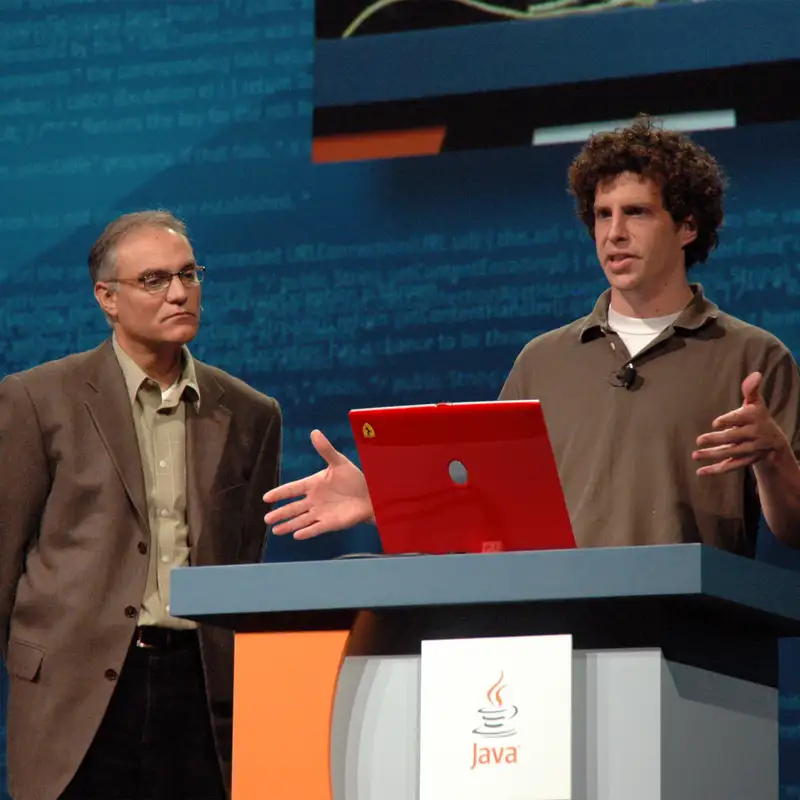
Kurt Mackey is back for a deep dive into what it takes to build the developer cloud. Kurt joins Adam to discuss the alliance between companies and cloud, something Kurt refers to as the "Rebel Alliance," cloud complexity vs usability, Fly's future with Postgres and why they've waited, thoughts on Neon and Supabase (Kur...
Gerhard is back for Kaizen 17! We discuss our CPU.fm changes in-depth, detail new Zulip / Neon integrations & put our Pipedream to the test. Oh, and a Gerhard surprise (of course)!
golang.org/x/crypto security updateGo 1.24 draft release notesBlog: What's missing from Golang Generics? by Nick TobeyLightning RoundBlog: Weak Pointers in Go: Why They Matter Now by Phuong LeOrchestrion: Compile-time auto-instrumentation for GoBuilding a distributed log using S3 (under 150 lines...

In this episode, CRob talks to Michael Winser, Technical Strategist for Alpha-Omega, an associated project of the OpenSSF that with open source software project maintainers to systematically find new, as-yet-undiscovered vulnerabilities in open so...
This week on the Business of Open Source, I have an episode recorded on-site at KubeCon SLC last month with Cole Kennedy, co-founder of TestifySec. We kicked off the conversation with a discussion about software development practices in the US Department of Defense and the US government at large...

With so many great programming languages having emerged in the last decade, many of them purpose-built, when and where does Go still make sense and how do you make the case for it at work?
Gerhard Lazu joins the show to discuss how Ship It! started and why you might want a general purpose language for your CI/CD.
We're hard at work preparing the first episode of Fallthrough, but in the meantime we put together a short trailer to tease some of that episode's content. Make sure to subscribe so you'll be notified when the first episode ships. Happy...
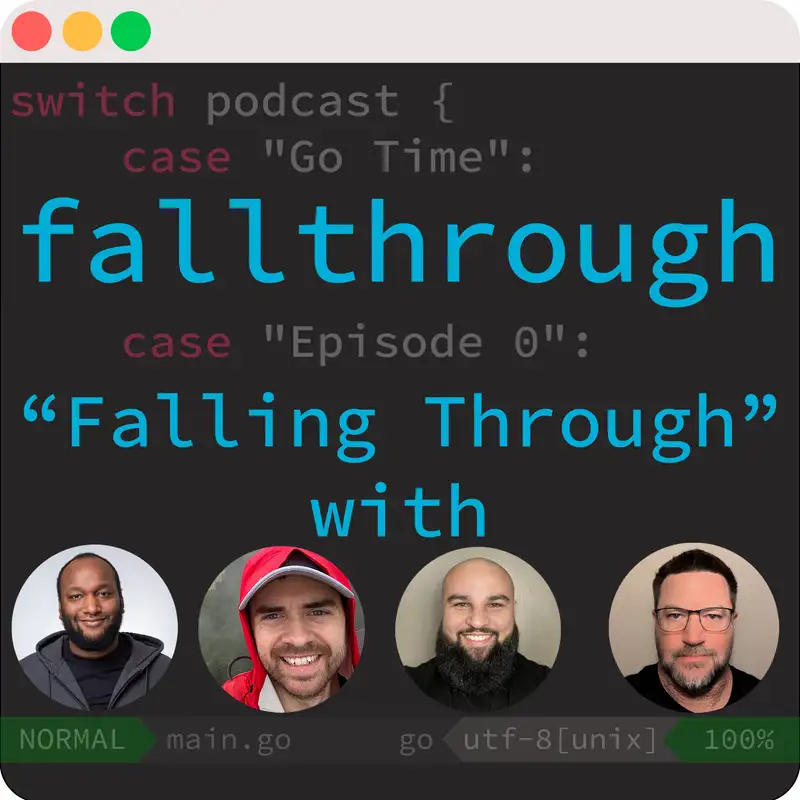
Go 1.23.4 and 1.22.10 releasedProposalsAccepted & implemented: testing: shuffle seed should be different when -shuffle=on and -count flag is setCLNew: cmd/vet: add check for sync.WaitGroup abuseAccepted: cmd/vet: warn about structs marked json omitemptyNew: runtime/mainthread: add mainthread.Do...

Chris Coyier and Dave Rupert join Adam and Jerod for a ShopTalk & Friends conversation on the viability of the web, making content, ads to support that content, Codepen's future plans, books, side quests, and social networks devaluing links.
Shawn Wang (aka swyx) is the founder of smol.ai (AI news curation), and the cohost of Latent Space (popular AI Engineer podcast). Plus, Shawn started the AI Engineer movement with his essay Rise of...

Our 6th annual year-end wrap-up episode! This time we're featuring 12 (yes, 12!) listener voice mails, our favorite episodes of the year & some insanely cool Breakmaster Cylinder beats made just for this occasion. Thanks for listening! 💚
Sagar is the CEO and co-founder of Speakeasy - an API tooling platform. We talk about the journey of Speakeasy. The challenges of startup life. How they developed the product and how they work with...

Jerod is joined by Hack Clubber Acon, who is fresh off the GitHub Universe stage and ready to tell us all about High Seas, a new initiative by Zach Latta and the Hack Club crew that's incentivizing teens to build cool personal projects by giving away free stuff.
Who pays for the future of infrastructure? In this special episode, I spoke to Bobby DeSimone, founder and CEO of Pomerium, about how he feels like infrastructure and security both have to be open source — but then, what does that mean about the future of the financial support for infrastructure...

<p>Ted Danson feels a bit strange about interviewing his TV “boss,” showrunner and writer Mike Schur. Of course, you know Mike as the creator of The Good Place and co-creator of shows like Parks and Recreation and Brooklyn Nine-Nine. Mike talks to Ted about pitching The Good Place, how Ted’s role on the show took shape, why Cheers was the first show he cared about, landing his dream job at SNL at 22, and much more.Ted and Mike have teamed up again on a new Netflix comedy series, “A Man on the Inside.” All eight episodes are streaming now: <a href="https://www.netflix.com/title/81677257">https://www.netflix.com/title/81677257</a></p><p> </p><p>Like watching your podcasts? Visit <a href="http://youtube.com/teamcoco">http://youtube.com/teamcoco</a> to see full episodes. </p>

Yasir Ekinci joins Johnny & Mat to talk about how virtually every Observability vendor is rushing to add Generative AI capabilities to their products and what that entails from both a development and usability perspective.
Marc Boorshtein from Tremolo Security joins Justin & Autumn to talk all about running Kubernetes in the public sector.
In the world of software development, updating dependencies is a crucial yet often neglected task. Renovate is a tool that helps make that job easier.
